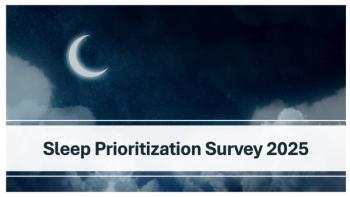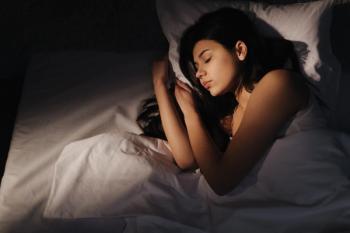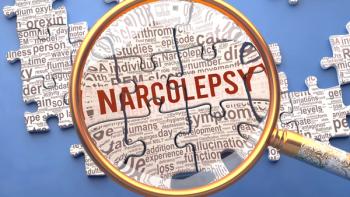
A Small Study Suggests a Big Change: CBT Treatment of Insomnia Along With Treatment of Alcohol Use Disorder Instead of Waiting Until Someone Quits Drinking
Standard guidelines that insomnia treatment for people with alcohol use disorder be delayed until abstinence is achieved delays therapy for many people — and most patients still struggle with sleep even after successfully quitting alcohol.
About three-quarters of people being treated for alcohol use disorder (AUD) experience symptoms of insomnia. Because alcohol disrupts sleep, however, current recommendations call for abstinence before treating the sleep disorder.
What, researchers asked, would happen if the
The answer: Insomnia symptoms were reduced and certain alcohol-related problems improved as well, at least according to the findings of a small, short-term
Fewer alcohol-related behavioral problems due to insomnia treatment might also improve outcomes of AUD treatment by lessening drinking-related harms, the researchers suggested.
Sleep diaries
To conduct their study, the researchers recruited veterans who were in residential treatment for AUD between 2019 and 2022 at a Veteran Affairs hospital, had moderate to severe AUD and reported drinking in the past two months.
They also had to meet the criteria for insomnia. Unlike some other studies, participants were not excluded due to (most) comorbid disorders or for taking sleep medication (as long as they were stable on the medications for two months).
After seven days during which they kept detailed sleep diaries to confirm the insomnia diagnosis, they were randomly assigned to two groups for five weeks. The intervention group’s 32 participants received five sessions on sleep hygiene; stimulus control and sleep restriction; relaxation; cognitive techniques, and insomnia relapse prevention.
The usual care group’s 35 participants reviewed a handout on standard sleep hygiene recommendations (limit caffeine, consistent bedtimes) with a study therapist during a single session and were asked to identify and prioritize one or two of the recommendations over the next five weeks.
Participants in both groups were told to continue their sleep diaries. The diaries and other self-reported measures were collected for the prior seven days at baseline (when they were randomized), posttreatment (six weeks after baseline) and follow-up (six weeks posttreatment). The self-reported measures and information in the diaries formed the basis for most of the analysis.
At follow-up, CBT-I participants reported an average 56% decline in insomnia severity compared with a 36% drop in the control group. The improvement in insomnia in the intervention group was also associated with notable reductions in alcohol-related problems (taking foolish risks, damaging relationships) at follow-up: down 83% vs. a 68% decrease in the control group.
The authors said that theirs is the first study to show a direct effect of cognitive-behavioral therapy on alcohol-related problems.
“This is a significant finding because it challenges current recommendations to postpone behavioral insomnia treatment until patients have achieved four weeks or longer of abstinence," wrote first author
Their findings suggest that waiting for individuals to succeed with abstinence (which may not be necessary for all individuals with AUD) may be a missed opportunity to improve their sleep and influence their experience of alcohol-related harm, wrote Miller and her colleagues. They also staked a claim to their study being the largest known study of CBT-I among people with alcohol use disorder.
Some caveats
However, the study had relatively few participants, and the follow-up period was relatively brief. Some of the researchers’ hypotheses (predicted lower frequency of heavy drinking at follow-up, which went up in both groups, and less use of alcohol as a sleep aid, which turned out not to vary enough to measure) did not pan out.
There are other limitations. The participants were 91% male and 84% white, which raises questions about whether the findings would apply to a broader population. Inclusion of people with comorbidities likely contributed to the variability in the outcomes, commented the researchers, although that might also make the findings more relevant to clinical practice because many people have multiple diseases.
Miller and her colleagues also noted that the comparison between the control intervention and five sessions of CBT-I make it impossible to know if it was CBT-I that made the difference or if it was the result of nonspecific therapy effects, such as the treatment time (one session versus five).
Nevertheless, they were firm in their conclusion: “Data suggest that delaying delivery of insomnia treatment until abstinence is established is unnecessary. CBT-I should be considered the first-line treatment for insomnia in AUD, regardless of abstinence.”
Newsletter
Get the latest industry news, event updates, and more from Managed healthcare Executive.

























